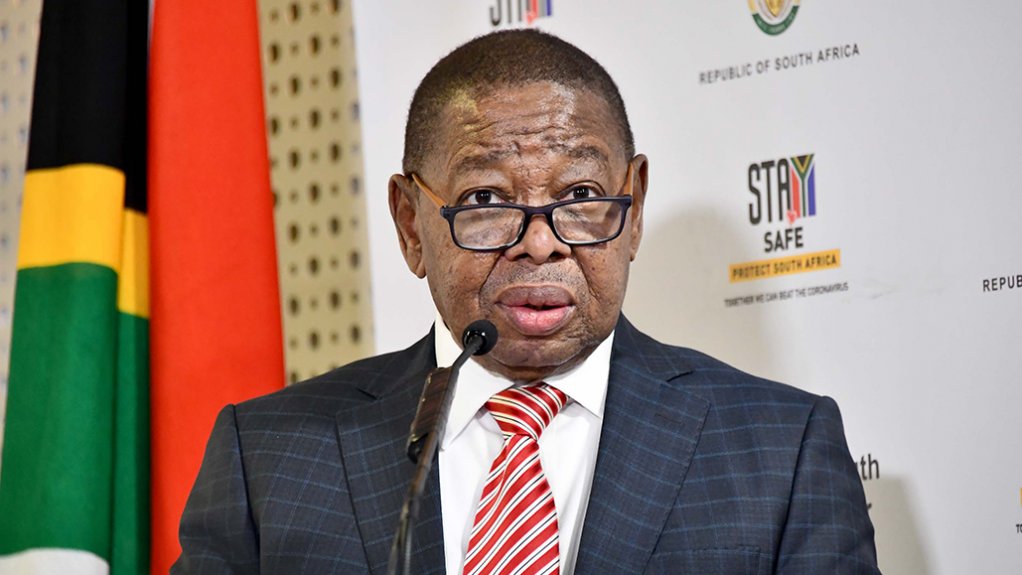/ MEDIA STATEMENT / The content on this page is not written by Polity.org.za, but is supplied by third parties. This content does not constitute news reporting by Polity.org.za.
The Minister of Science, Technology and Innovation, Professor Blade Nzimande has expressed his shock and great sadness at the news of the passing away of Professor Muxe Nkondo, a friend, colleague, and fellow intellectual in the struggle against the tyranny of apartheid and the development of the democratic order in the post-1994 period.
Minister Nzimande said: “Professor Nkondo has a special place in the history of both the struggles leading up to the fall of apartheid and emergence of a democratic order in the early 1990s. I remember him as a radical scholar, organic intellectual, activist, and a leading figure amongst the first generation of Vice-Chancellors who led our higher education system through its difficult first decades of transformation”.
Prof Nkondo placed great importance on recognition of African liberation as a process of not only overcoming the legacies of political disempowerment, but one of cultural, social, economic and intellectual emancipation. In other words, for him, attainment of formal, political rights must be matched by transformations in all other aspects of human life.
He was deeply influenced by radical post-independence and liberation thinkers such as Walter Rodney, Franz Fanon, Amilcar Cabral, CLR James and Steve Biko. He framed the importance of cultural and intellectual freedom at the centre of his work- an orientation that perhaps explains his lifelong commitment to higher education and intellectual work which spanned a wide range of fronts, from higher education, arts and culture, public administration, rural development civil society and economic development.
In higher education, Professor Nkondo occupied senior roles as Deputy Vice-Chancellor at the University of the North and Vice-Chancellor of Venda University. He was also a leading figure in the Association of Historically-Black Universities, and campaigned relentlessly for recognition of their distinctive role and place within the higher education landscape, and for redress and equity.
At the University of Venda, Professor Nkondo pioneered a vision emphasising the rural development mission of the university, rooted in its social context, and promoted a science, technology and innovation agenda of the university that tackled pressing development issues such as water security, food production, sanitation, small business development and cultural production, working closely with local communities.
He also served as Chairperson of the Technical Team and Reference Group that drafted the Indigenous Knowledge Systems (IKS) National Policy for the Department of Science and Technology.
Professor Nzimande remarked: “it is hard to pigeon-hole the intellectual contribution of Professor Nkondo as he was truly a polymath, whose contributions spanned a stunning range of areas including science and technology, higher education, arts and culture, public administration, human settlements, tourism, and rural development.
He was not only an African intellectual focusing on the local and national questions of development in South Africa, but was also, par excellence, a pan-African intellectual who worked actively across the continent to advance a new Africa agenda for the African Union (AU) and NEPAD (New Partnership for Africa’s Development).
He was among 500 African scholars invited by the AU in 2004 to Dakar, Senegal, to speak on the role of intellectuals in Africa’s development. The Department of Science and Innovation (DSI) will surely miss his seminal contributions to our own understanding of the role of science and technology in the emancipation of South Africa’s most marginalised communities.
His contributions to IKS continue to resonate in the DSI’s White Paper on Science and Innovation (2019) and Decadal Plan. Minister Nzimande said: “I wish to join our President, Cyril Ramaphosa, in expressing my heartfelt condolences to the wife of Professor Nkondo, Professor Olga Nkondo and their children and extended family.”
Issued by Department of Science, Technology and Innovation
EMAIL THIS ARTICLE SAVE THIS ARTICLE ARTICLE ENQUIRY
To subscribe email subscriptions@creamermedia.co.za or click here
To advertise email advertising@creamermedia.co.za or click here











